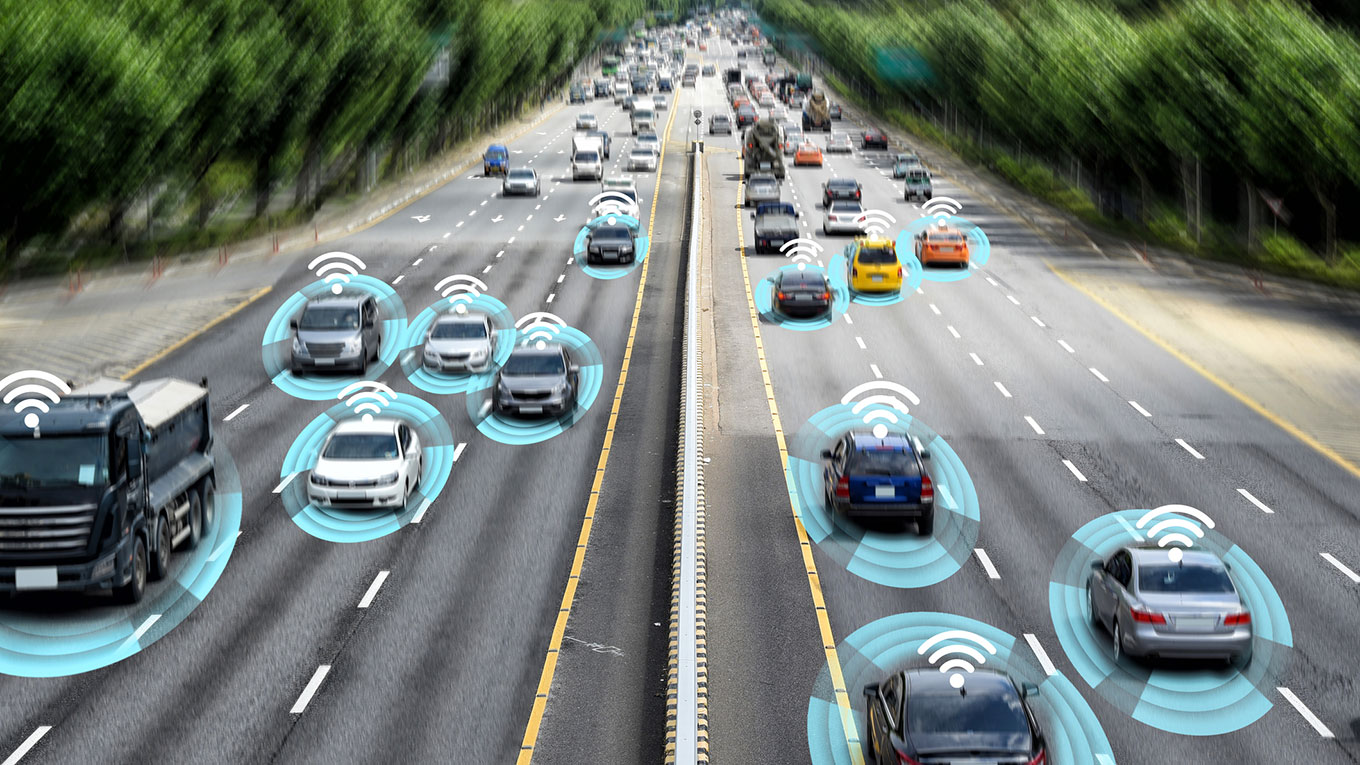 Rendering of autonomous self-driving vehicles on metro city road. (Image by iStock)
Rendering of autonomous self-driving vehicles on metro city road. (Image by iStock)UC Berkeley advances cyber-physical systems research as part of $6 million NSF project
A new project funded by the National Science Foundation will revamp the way we engineer the cyber-physical systems (CPSs) underpinning self-driving vehicles and aviation controls, enabling safer and more reliable autonomous transportation systems.
The NSF announced a $6 million grant for a five-year, multi-institutional project for research to resolve key engineering challenges of CPSs. The project will be led by a team at UC Santa Cruz in partnership with researchers at UC Berkeley, University of Pennsylvania, Vanderbilt University, University of Colorado at Boulder, the Norwegian University of Science Technology and Italy’s IMT School for Advanced Studies Lucca.
CPSs are highly complex systems that integrate algorithms, networks and physical components controlling smart devices. The researchers will be rethinking the modeling, analysis and design of a new generation of intelligent transportation systems so that the algorithms running them are adapted to computational constraints, resulting in systems that run more efficiently and reliably.
“The goal is to enable automated synthesis of feedback controllers and to apply the results to autonomous land and marine vehicles,” said Murat Arcak, professor of electrical engineering and computer sciences, who is leading the effort at UC Berkeley.
CPSs face major engineering challenges due to the computational limitations of traditional processors as well as the scale and diversity of physical components. For example, computers are updated with information from the physical systems only periodically, meaning the system is sometimes running on old information, which can jeopardize its safety and performance. This project aims to solve this and other problems by codesigning the algorithms and hardware of CPSs so that the physics, hardware and software are unified.
The researchers also will work with industry partners — such as Toyota Motor Engineering & Manufacturing, Toyota Research Institute, Joby Aviation and Summer Robotics — to gather strategic advice about existing hardware and to test and validate the autonomous transportation systems created by this project.
